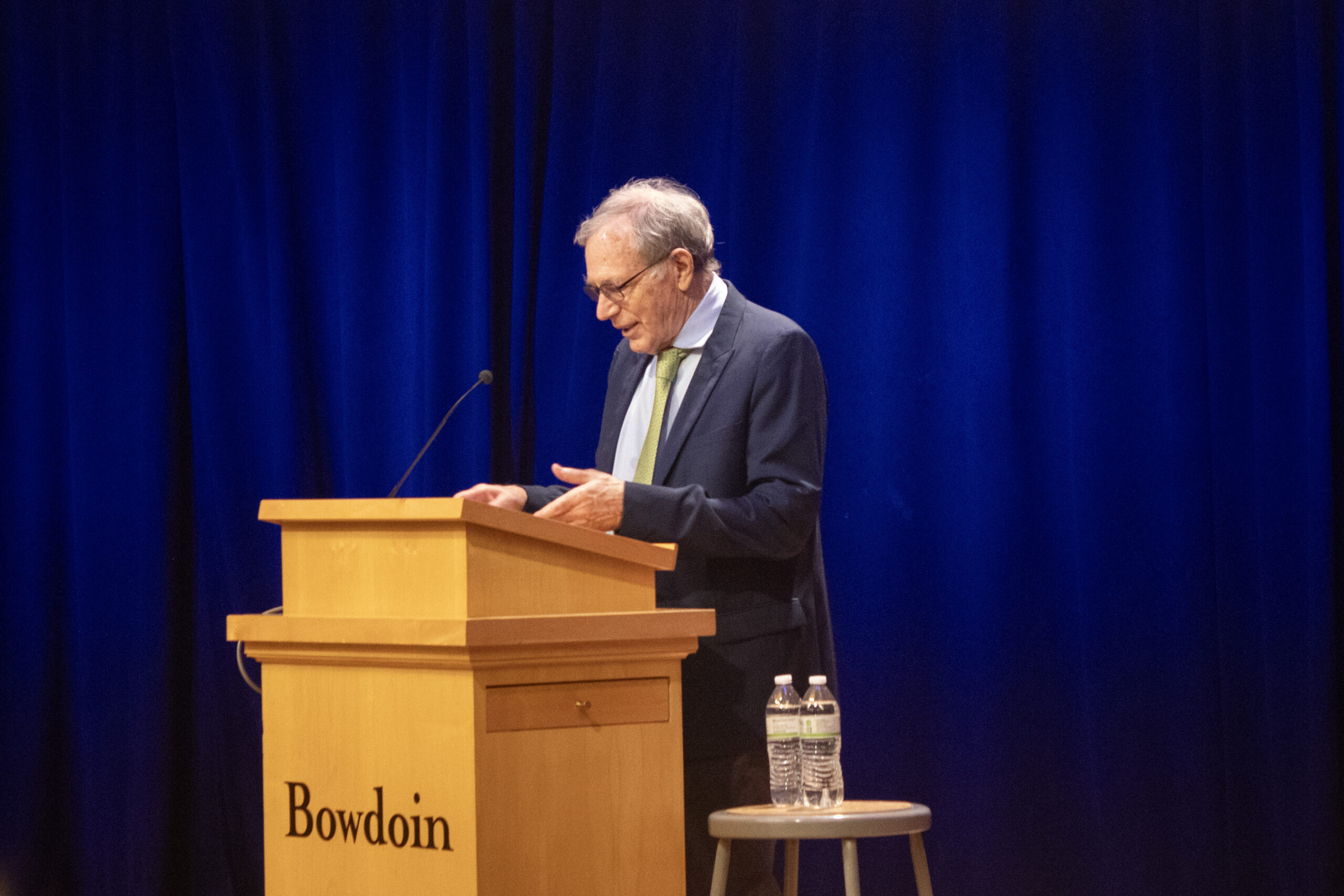Eric Foner reconstructs the history of Reconstruction
September 20, 2024
 Janet Briggs
Janet BriggsIn a packed Kresge Auditorium Wednesday evening, Dr. Eric Foner, professor emeritus of history at Columbia University and winner of several Pulitzer Prizes, gave a talk on the Reconstruction period following the United States Civil War and its impact on today’s political climate. In an hour-long lecture followed by a Q&A, Foner discussed the political triumphs and shortcomings of Reconstruction, its legislative legacy and the importance of accurate historical scholarship.
The talk marked the first installment of a weekly lecture series sponsored by the Office of Inclusion and Diversity aimed at encouraging productive political discourse leading up to the presidential election. Following each of these events, there is a moderated discussion over dinner to foster thoughtful reflection among attendees.
Foner kicked off the talk by discussing many Americans’ lack of understanding about the Reconstruction period. Laying the groundwork for the rest of his speech, Foner emphasized the dangers of these knowledge gaps.
“Even if we’re not aware of it, Reconstruction is a part of our lives today. Key questions facing American society today are Reconstruction questions. You can’t fully understand them without knowing something about that period,” Foner said.
Foner’s talk emphasized the importance of an accurate telling of Reconstruction history. Foner pointed to forces in academia that have historically disseminated a skewed, racist narrative of the Civil War’s aftermath, resulting in grave political consequences in the first half of the 20th century.
“According to these scholars, African Americans were simply incapable of participating intelligently in political democracy,” Foner said. “This supposed history of Reconstruction helped to justify the Jim Crow system and the deprivation of the constitutional rights of African Americans that led to the Civil Rights revolution.”
After discussing the period’s legislative successes—namely the Thirteenth, Fourteenth and Fifteenth Amendments—Foner described the legacy that Reconstruction’s failures have in the present. He explained how President Andrew Johnson’s decision to allocate no land to formerly enslaved Americans continues to affect Black families today.
“The failure of land distribution condemned most of the former slaves to live lives of poverty, making it very difficult for them to move ahead economically. It affects our country to this day—the initial failure of land reform is an explanation for the wide gap of the median family wealth of Black families and white families,” Foner said.
The lecture drew interesting connections between Reconstruction and the state of civil rights today. Foner noted how President Johnson’s veto of the Civil Rights Act of 1866 alluded to the concept of “reverse discrimination,” which is debated in conversations about civil rights today.
“In this idea that expanding the rights of non-whites somehow punishes the white majority, the ghost of Andrew Johnson still haunts our debates about race to this day,” Foner said.
To end his talk, Foner discussed the power of history education to encourage a productive path forward.
“A number of states have passed laws in the past few years to restrict the teaching of history—particularly what are called ‘divisive subjects’ like race and others. Being taught an inaccurate view of history is not going to help young people become better citizens in the United States,” Foner said. “A candid account of our nation’s history … may help us continue the progress that has been made and lay a foundation for a more equal, more just nation and a reinvigorated American democracy.”
For some attendees, Wednesday’s programming did not end with Foner’s closing remarks. The Office of Inclusion and Diversity hosted a dinner in Daggett Lounge immediately following the talk. Seated at Daggett’s round tables, attendees discussed key takeaways and lingering questions from the evening.
Maggie Ziegler ’28, who attended the dinner, valued the opportunity to extend the conversation beyond Kresge and appreciated the broad range of perspectives at her table.
“I loved how [the dinner] was intergenerational, and I could hear the perspectives of so many different people who’ve had so many different life experiences. I’m really glad I came, and my only regret is that it wasn’t a little bit longer,” Ziegler said.

Comments
Before submitting a comment, please review our comment policy. Some key points from the policy: